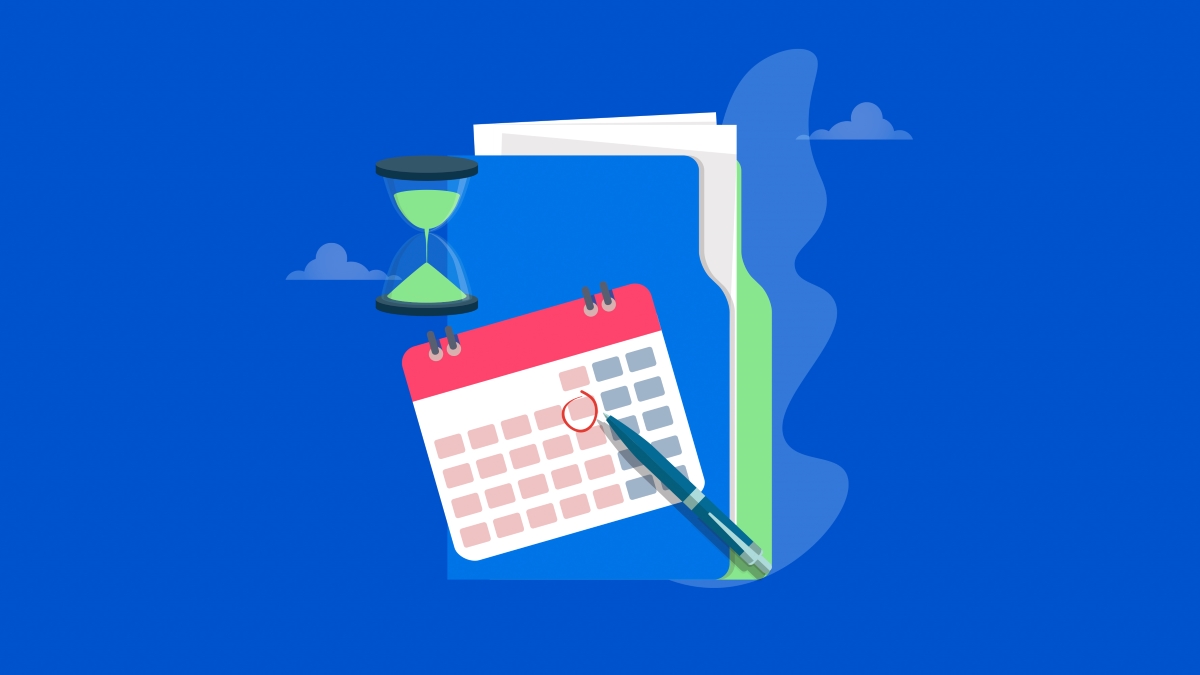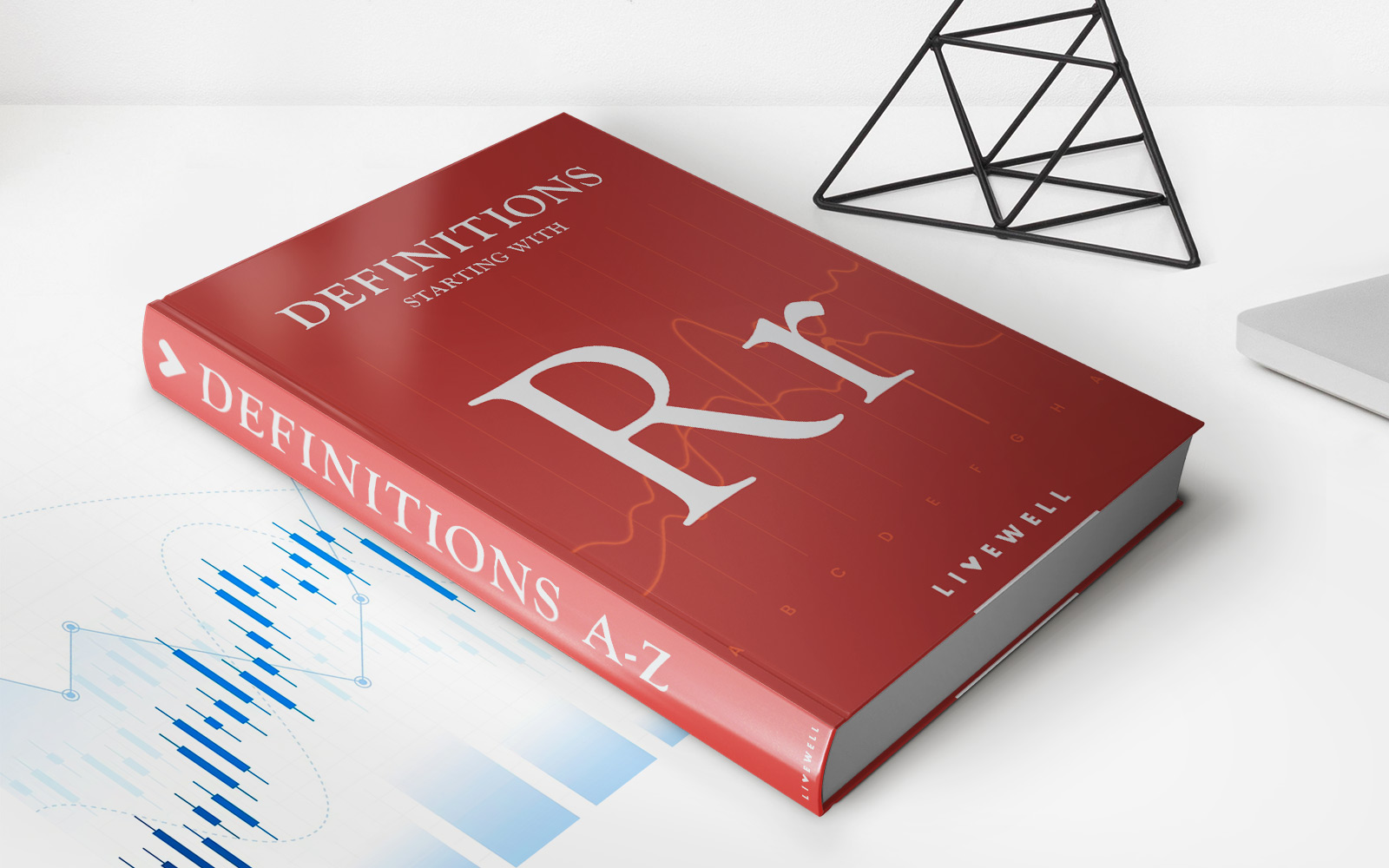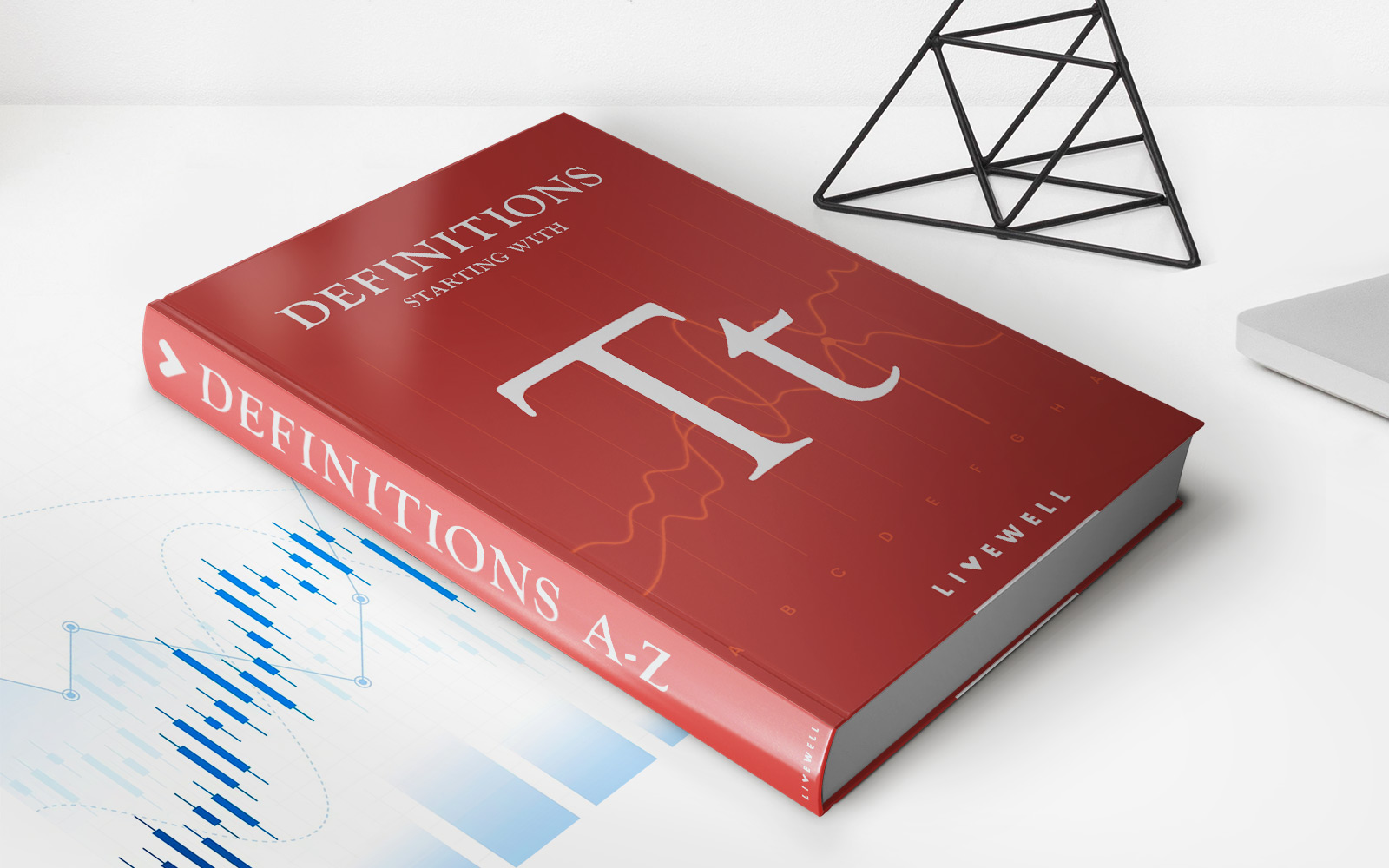

Finance
How To Get Student Loans Off Your Credit
Modified: March 1, 2024
Looking to improve your finance? Learn how to remove student loans from your credit and take control of your financial future.
(Many of the links in this article redirect to a specific reviewed product. Your purchase of these products through affiliate links helps to generate commission for LiveWell, at no extra cost. Learn more)
Table of Contents
- Introduction
- Understanding the Impact of Student Loans on Credit
- Reviewing Your Student Loan Situation
- Exploring Repayment Options
- Establishing a Payment Plan
- Consolidating Your Student Loans
- Rehabilitating Defaulted Student Loans
- Seeking Loan Forgiveness Programs
- Disputing Errors on Your Credit Report
- Seeking Professional Help
- Conclusion
Introduction
Student loans are often a necessary means for many individuals to pursue higher education. While these loans can provide the financial support needed to attend college or university, they also have a significant impact on a person’s credit. Understanding how student loans affect your credit can help you take control of your financial future and potentially remove them from your credit report.
When you take out a student loan, the lender reports the loan to the credit bureaus, and it becomes a part of your credit history. This means that your payment history, loan balance, and other loan-related details are reflected on your credit report. The way you manage your student loan payments can greatly impact your credit score, which is a crucial factor when it comes to obtaining credit in the future.
If you’ve noticed that your student loans have negatively affected your credit score, don’t worry. There are steps you can take to improve your credit and potentially remove student loans from your credit report. This article will guide you through the process, providing helpful tips and strategies to help you manage and, if possible, get rid of student loans on your credit.
Before diving into specific solutions, it’s important to review your current student loan situation. Take some time to gather all the necessary information about your loans, including the types of loans you have, the outstanding balances, and the repayment terms. This will give you a clearer picture of where you stand and what options are available to you.
Remember, dealing with student loans can be overwhelming, but with the right knowledge and action plan, you can work towards improving your credit and ultimately achieving financial freedom.
Understanding the Impact of Student Loans on Credit
When it comes to credit, student loans have a significant impact. They can have both positive and negative effects on your credit score, depending on how you manage them. Here are some key points to understand about the impact of student loans on your credit:
Payment History: Your payment history is one of the most crucial factors affecting your credit score. Making consistent and timely payments on your student loans can help build a positive payment history, which can boost your credit score. On the other hand, missing payments or defaulting on your loans can severely damage your credit.
Credit utilization ratio: Your credit utilization ratio is the amount of credit you’re using compared to your total available credit. Student loan debt is considered installment debt, which doesn’t have as much impact on your credit utilization ratio as revolving debt (e.g., credit card debt). However, large student loan balances can still impact your overall credit profile.
Length of credit history: Student loans, especially federal loans, typically have long repayment terms. This means that having student loans on your credit report for an extended period can help establish a longer credit history, which is generally seen as positive by lenders.
Credit mix: Having a mix of different types of credit, such as credit cards, loans, and mortgages, can positively impact your credit score. Adding student loans to your credit mix can diversify your credit profile, which can be beneficial.
Debt-to-income ratio: Student loan debt can significantly impact your debt-to-income ratio, which is the percentage of your monthly income that goes towards debt payments. Lenders often consider this ratio when evaluating your creditworthiness, so it’s important to manage your student loan payments accordingly.
Understanding these factors will help you navigate the impact of student loans on your credit effectively. By managing your loans responsibly and making timely payments, you can minimize the negative impact and potentially improve your credit over time.
Reviewing Your Student Loan Situation
Before making any decisions or taking steps to address your student loans and their impact on your credit, it’s essential to have a clear understanding of your current student loan situation. Here are some key points to consider when reviewing your student loan status:
Loan Types: Identify the types of student loans you have. They could be federal loans, private loans, or a combination of both. Knowing the types of loans will determine what repayment options and forgiveness programs might be available to you.
Outstanding Balances: Take note of the current balances on your student loans. This will give you an idea of the total debt you’re dealing with. It’s crucial to have accurate and up-to-date information on the amounts you owe.
Interest Rates: Understand the interest rates associated with each of your loans. Different loans may have different rates, and knowing this information will help you assess the overall cost of your loans and make informed decisions about repayment strategies.
Repayment Terms: Review the repayment terms of your student loans. Make note of the length of the repayment period, the monthly payment amounts, and any available grace periods. Understanding your repayment terms will help you plan your finances and determine if any adjustments are necessary.
Loan Servicers: Identify the loan servicers or loan providers for each of your student loans. It is important to have their contact information readily available for any inquiries or communication related to your loans.
Payment History: Evaluate your payment history for your student loans. Have you been making consistent payments? Have you ever missed any payments or gone into default? Reviewing your payment history will give you a clear understanding of how your past actions have affected your credit and provide insights into areas that may need improvement.
Grace Periods and Deferment Options: If you’re still in school or experiencing financial hardship, find out if you have any grace periods or if you’re eligible for deferment or forbearance options. These options can provide temporary relief from making payments and help you avoid defaulting on your loans.
Taking the time to review your student loan situation will give you a comprehensive understanding of your loans and their impact on your credit. It will also enable you to make informed decisions and explore appropriate strategies to address your student loan debt and improve your credit standing.
Exploring Repayment Options
When it comes to student loan repayment, there are several options available to borrowers. Exploring these options can help you find a repayment plan that suits your financial situation and minimizes the impact of your student loans on your credit. Here are some common repayment options to consider:
Standard Repayment Plan: This is the most basic repayment option, where you make fixed monthly payments over a designated period, usually 10 years. It is a good option if you can afford the monthly payment amount and want to pay off your loans quickly.
Graduated Repayment Plan: With this plan, your payments start off lower and gradually increase over time, typically every two years. It is beneficial for borrowers who anticipate increasing their income over time and can accommodate the higher payments in the future.
Income-Driven Repayment Plans: These plans calculate your monthly payments based on your income and family size. Examples of income-driven repayment plans include Income-Based Repayment (IBR), Pay As You Earn (PAYE), and Revised Pay As You Earn (REPAYE). These plans can be helpful if you have a low income relative to your student loan debt.
Extended Repayment Plan: This plan allows you to extend the repayment period beyond the standard 10-year term, potentially reducing your monthly payments. However, keep in mind that extending the repayment period may result in paying more interest over time.
Public Service Loan Forgiveness (PSLF): If you work in a qualifying public service job, you may be eligible for the PSLF program. Under this program, after making 120 qualifying payments, the remaining balance on your federal loans may be forgiven. It is essential to meet all the program requirements to ensure eligibility.
Loan Rehabilitation: If your student loans have gone into default, loan rehabilitation is a pathway to get them back in good standing. By making a series of agreed-upon payments, you can regain eligibility for repayment plans and remove the default status from your credit report.
Loan Repayment Assistance Programs (LRAPs): Some employers and organizations offer LRAPs to help employees or members repay their student loans. These programs can provide financial assistance, often in the form of grants, to help alleviate the burden of student loan debt.
When exploring repayment options, consider your financial situation, future plans, and long-term goals. Understanding the different plans available to you can assist in finding a suitable repayment strategy that aligns with your budget and helps maintain a positive credit profile.
Establishing a Payment Plan
Once you have evaluated your student loan situation and explored various repayment options, it’s time to establish a payment plan. Having a well-defined plan will help you stay on track with your payments and minimize the negative impact of your student loans on your credit. Here are some steps to consider when establishing a payment plan:
Evaluate Your Budget: Take a close look at your monthly income and expenses to establish a realistic budget. Determine how much you can comfortably allocate towards your student loan payments without compromising other essential financial obligations. Consider cutting back on discretionary expenses to free up more funds for debt repayment.
Contact Your Loan Servicer: Reach out to your loan servicer to discuss your repayment options and inquire about any available assistance programs. They can provide valuable information regarding eligibility criteria, interest rates, and the application process for various repayment plans. They may also inform you about any potential benefits or discounts for enrolling in automatic payments.
Choose the Right Repayment Plan: Based on your financial situation and goals, select the repayment plan that best aligns with your needs. Consider factors such as monthly payment amounts, the overall duration of repayment, and the total interest you will pay over time.
Set Up Automatic Payments: Consider setting up automatic payments for your student loans. This ensures that your payments are consistently made on time each month, reducing the risk of late or missed payments. Many lenders offer incentives for enrolling in automatic payments, such as interest rate reductions.
Explore Extra Payment Options: If you have the financial means, consider making extra payments towards your student loans. Making additional payments can help reduce the principal balance faster, resulting in lower overall interest and accelerated loan repayment.
Monitor Your Progress: Regularly check your loan statements and credit reports to ensure that your payments are being properly applied and to track your progress toward paying off your loans. Review any statements for errors or discrepancies and promptly contact your loan servicer to address any issues.
Adapt as Needed: Life circumstances may change, and your ability to make payments can fluctuate. If you encounter financial hardship or have difficulty making your payments, reach out to your loan servicer to discuss possible options, such as deferment, forbearance, or alternative payment arrangements.
Establishing a payment plan and consistently following it will help you manage your student loan debt responsibly. By making regular, on-time payments, you can build a positive payment history and boost your credit. Remember, staying proactive and communicative with your loan servicer is essential to ensure a smooth repayment process.
Consolidating Your Student Loans
If you have multiple student loans, you may find it beneficial to consolidate them into a single loan. Loan consolidation can simplify the repayment process and potentially improve your credit. Here are some key points to consider when contemplating loan consolidation:
What is Consolidation?
Loan consolidation involves combining multiple student loans into one loan with a single monthly payment. It essentially pays off your existing loans and replaces them with a new loan. This can make it easier to manage your debt by consolidating different loan types and streamlining your repayment process.
Benefits of Consolidation:
Simplified Repayment: Consolidating your loans means you only have one monthly payment to worry about, instead of keeping track of multiple due dates and varying interest rates.
Potential for Lower Monthly Payments: Consolidation can extend your repayment term, which may result in lower monthly payments. This can be helpful if you are facing financial challenges or aiming to free up some cash flow.
Fixed Interest Rate: Consolidating your loans typically results in a fixed interest rate, which can provide stability and predictability in your monthly payments. This is particularly beneficial if some of your loans have variable interest rates.
Improve Credit Utilization Ratio: By consolidating your loans, you can potentially lower your credit utilization ratio. This ratio compares your total outstanding debt to your available credit, and a lower ratio can positively impact your credit score.
Factors to Consider:
Eligibility: Not all loans are eligible for consolidation. Federal student loans, such as Direct Loans and FFEL Loans, can be consolidated through the federal Direct Consolidation Loan program. Private student loans may require consolidation through a private lender.
Interest Rates: When considering consolidation, evaluate the interest rates on your existing loans and compare them to the potential interest rate of the consolidated loan. It’s important to ensure that the consolidated loan offers a competitive rate.
Loan Term: Extending the repayment term by consolidating your loans may result in lower monthly payments but could lead to paying more in interest over the long run. Consider your financial goals and weigh the pros and cons of a longer repayment term.
Repayment Options: Consolidation may impact your eligibility for certain repayment plans or loan forgiveness programs. Evaluate whether the potential benefits of consolidation outweigh any loss of repayment options.
Financial Impact: Take the time to calculate and analyze the potential financial impact of consolidation. Compare the total cost of your current loans against the projected costs of the consolidated loan to determine whether consolidation makes financial sense in your situation.
Consolidating your student loans can be a useful strategy to simplify your repayment process and potentially improve your credit. However, it’s important to carefully consider the factors mentioned above and assess your specific circumstances before deciding to consolidate.
Rehabilitating Defaulted Student Loans
If you have defaulted on your student loans, it’s crucial to take immediate action to rehabilitate your loans and repair the damage to your credit. Defaulting on student loans can have severe consequences, such as wage garnishment and a significant negative impact on your credit score. Here are steps to consider when rehabilitating defaulted student loans:
Review Loan Status: Understand the current status of your defaulted loans. Contact your loan servicer or a debt collection agency to gather information about the outstanding balance, interest, and any collection fees associated with your loans.
Contact your Loan Servicer: Reach out to your loan servicer to discuss rehabilitation options. They can provide guidance on the specific steps you need to take to rehabilitate your loans and regain good standing.
Repayment Agreement: Your loan servicer may offer you a repayment agreement based on your income and expenses. This agreement will outline a monthly payment amount that you can afford. It’s essential to stick to this agreement and make consistent, on-time payments.
Income-Driven Repayment Plans: If the monthly payment amount under the proposed repayment agreement is still unaffordable, you can explore income-driven repayment plans. These plans calculate the monthly payment based on your income and family size and can be more manageable for some borrowers.
Payment Consistency: Make your loan payments consistently and on time as agreed upon with your loan servicer. Consistent and timely payments are crucial for rehabilitating your loans and improving your credit score.
Rehabilitation Period: Depending on your loan program, the rehabilitation period can range from several months to a year. During this time, make all the payments as required to successfully complete the rehabilitation program.
Remove Default Status: Upon successful completion of the rehabilitation program, your loan servicer will remove the default status from your credit report. This is an important step toward improving your credit.
Loan Rehabilitation Consolidation: Once your loans are rehabilitated, you may have the option to consolidate them into a new loan. Loan consolidation can simplify your repayment process and potentially provide more favorable terms.
Rebuilding Credit: After rehabilitating your defaulted loans, it’s essential to continue making timely payments on all your financial obligations. Consistently paying bills on time, keeping credit card balances low, and maintaining a responsible credit behavior will gradually rebuild your credit score.
Rehabilitating defaulted student loans requires commitment, discipline, and financial management. By diligently following the rehabilitation process and making consistent payments, you can regain control of your loans and repair the negative impact on your credit.
Seeking Loan Forgiveness Programs
If you’re struggling with the burden of student loan debt, seeking loan forgiveness programs can provide significant relief. Loan forgiveness programs are designed to alleviate the financial strain by partially or fully forgiving your student loan debt under certain circumstances. Here are some key loan forgiveness options to explore:
Public Service Loan Forgiveness (PSLF): The PSLF program forgives the remaining balance on federal Direct Loans after making 120 qualifying payments while working full-time for a qualifying employer in the public service sector. This program can be a game-changer for borrowers who pursue careers in public service, including government, non-profit organizations, and certain educational institutions.
Teacher Loan Forgiveness: Teachers who work in low-income schools or educational service agencies may be eligible for loan forgiveness through the Teacher Loan Forgiveness program. This program forgives a portion of the debt, up to a specified amount, for eligible teachers who meet specific criteria regarding the length of their service and the subjects they teach.
Income-Driven Repayment Forgiveness: Borrowers on income-driven repayment plans, such as Income-Based Repayment (IBR), Pay As You Earn (PAYE), and Revised Pay As You Earn (REPAYE), may be eligible for loan forgiveness after a certain period of continuous payments. The forgiveness amount will depend on the specific plan and the remaining balance after the repayment period.
Perkins Loan Cancellation: Perkins Loan borrowers may be eligible for loan cancellation if they work in specific public service fields, such as education, law enforcement, or nursing. The cancellation offers a percentage reduction of the loan amount for each year of qualifying service.
Healthcare Professions Loan Forgiveness: Health professionals, such as doctors, nurses, and dentists, may qualify for loan forgiveness or repayment assistance through various federal and state programs. These programs often target individuals who are willing to work in underserved areas that lack access to healthcare services.
State-Specific Loan Forgiveness Programs: Many states offer loan forgiveness programs to incentivize professionals to work in high-need areas or in fields that contribute to the state’s economic growth. These programs vary by state and may target specific professions such as teachers, healthcare professionals, or lawyers.
Military Service Forgiveness: Military personnel may have access to loan forgiveness programs through the Armed Forces, including the Army, Navy, Air Force, and National Guard. These programs provide loan forgiveness in exchange for service in specific occupations or qualifying duty stations.
Each loan forgiveness program has its own eligibility requirements and application processes. It’s essential to research and understand the specific criteria for each program before applying. Consulting with a financial advisor or student loan counselor can also provide valuable guidance in determining which loan forgiveness options best suit your circumstances.
Loan forgiveness programs can provide much-needed relief from the burden of student loan debt. By exploring these options, you may be able to significantly reduce or eliminate your loan obligations and move towards a more financially secure future.
Disputing Errors on Your Credit Report
Your credit report plays a crucial role in determining your creditworthiness and financial standing. It’s important to review your credit report periodically and address any errors or inaccuracies. Disputing errors on your credit report can help protect your credit score and ensure that your creditworthiness is accurately reflected. Here are the steps to take when disputing errors on your credit report:
Review Your Credit Report: Obtain a copy of your credit report from each of the three major credit bureaus – Equifax, Experian, and TransUnion. Carefully review each report to identify any errors, such as incorrect personal information, inaccurate account details, or unauthorized accounts.
Document the Errors: Make a note of any errors you find on your credit report. Take screenshots or print out copies of the report pages that show the errors. Be sure to have clear evidence to support your dispute.
Submit a Dispute: Contact the credit bureau(s) in writing to dispute the errors on your credit report. Include a detailed explanation of each error and any supporting documentation. Send your dispute via certified mail with a return receipt to ensure that it is received and documented.
Notify Creditors: If the errors on your credit report are related to specific accounts, notify the creditor(s) associated with those accounts. Provide them with the same information and documentation you submitted to the credit bureau(s). They should investigate the matter and correct any errors they find.
Monitor the Investigation: The credit bureau(s) will initiate an investigation upon receiving your dispute. They have 30 days to investigate and respond to your dispute. During this time, continue monitoring your credit report for updates and ensure that the errors are being addressed appropriately.
Keep Records: Maintain copies of all correspondence, including the dispute letter you sent, the responses you receive, and any documentation provided. These records will be important if you need to escalate your dispute or provide evidence in the future.
Follow Up: If the credit bureau(s) do not appropriately address your dispute or fail to remove the errors, you have the right to escalate your dispute. Submit a follow-up letter with additional evidence and reasons why the errors should be corrected. You may also consider consulting with a credit repair professional or seeking legal assistance if necessary.
It’s important to stay persistent and patient throughout the dispute process as it can take time to resolve inaccuracies on your credit report. Regularly monitor your credit report even after the dispute is settled to ensure the errors do not reappear. By taking quick action to dispute and correct errors, you can protect your credit and maintain an accurate reflection of your financial history.
Seeking Professional Help
Managing and addressing financial matters can be overwhelming, especially when dealing with complex issues like student loans and credit. In such cases, seeking professional help can provide valuable guidance and support. Here are some instances where seeking professional help may be beneficial:
Credit Counselors: Credit counselors specialize in helping individuals manage their credit and debt. They can provide personalized advice on budgeting, debt management plans, and strategies to improve your credit. Credit counseling agencies can also negotiate with creditors on your behalf and help create a plan to repay your debts.
Student Loan Counselors: Student loan counselors are experts in navigating the complexities of student loans. They can provide guidance on loan repayment options, loan forgiveness programs, and other strategies to manage student loan debt. Student loan counselors can help you understand your rights and responsibilities as a borrower and assist in exploring repayment plans that align with your financial situation.
Financial Planners: Financial planners can offer comprehensive financial guidance and help you create a strategic plan to reach your financial goals. They can assist with budgeting, investment strategies, retirement planning, and other aspects of your overall financial well-being. A financial planner can help you develop a long-term financial roadmap and provide advice specific to your unique circumstances.
Consumer Protection Attorneys: If you encounter legal issues related to your credit, such as debt collection harassment, unfair debt collection practices, or credit report errors, seeking assistance from a consumer protection attorney may be necessary. They can help protect your rights, navigate legal processes, and represent your interests in disputes or legal proceedings.
Nonprofit Organizations: Various nonprofit organizations provide free or low-cost financial counseling services. These organizations often specialize in assisting low-income individuals, families, or specific communities. They can offer guidance on a wide range of financial issues, including credit management, debt reduction, and financial education.
Government Agencies: Government agencies, such as the Consumer Financial Protection Bureau (CFPB) and the Federal Student Aid office, offer resources and assistance for managing financial matters. They provide information on consumer rights, student loan options, financial literacy, and tools to help you navigate complex financial situations.
When seeking professional help, it’s essential to research reputable and accredited professionals or organizations. Take the time to read reviews, check credentials, and ensure they have the expertise and experience to address your specific financial concerns. Professional assistance adds an extra layer of support and expertise as you navigate complex financial challenges, helping you make informed decisions and work towards your financial goals.
Conclusion
Navigating the world of student loans and credit can be daunting, but with the right knowledge and action plan, you can take control of your financial future. Understanding how student loans impact your credit and exploring various repayment options are essential steps toward managing your loans effectively. By reviewing your student loan situation, establishing a payment plan, and potentially consolidating your loans, you can minimize the negative impact on your credit and work towards financial stability.
If you find yourself in a difficult situation, there are resources available to help. Seeking loan forgiveness programs, rehabilitating defaulted student loans, and disputing errors on your credit report are strategies to alleviate the burden of student loan debt and improve your credit standing.
However, it’s important to remember that seeking professional help can provide invaluable support along the way. Credit counselors, student loan counselors, financial planners, consumer protection attorneys, and nonprofit organizations can offer expert guidance tailored to your unique circumstances, ensuring you make informed decisions and take appropriate actions to tackle your financial challenges.
Repaying student loans and managing credit may seem overwhelming, but with perseverance and the right strategies, you can overcome these challenges. Stay proactive, stay informed, and stay focused on your long-term financial goals. By taking control of your student loans and credit, you can pave the way toward a brighter financial future.














